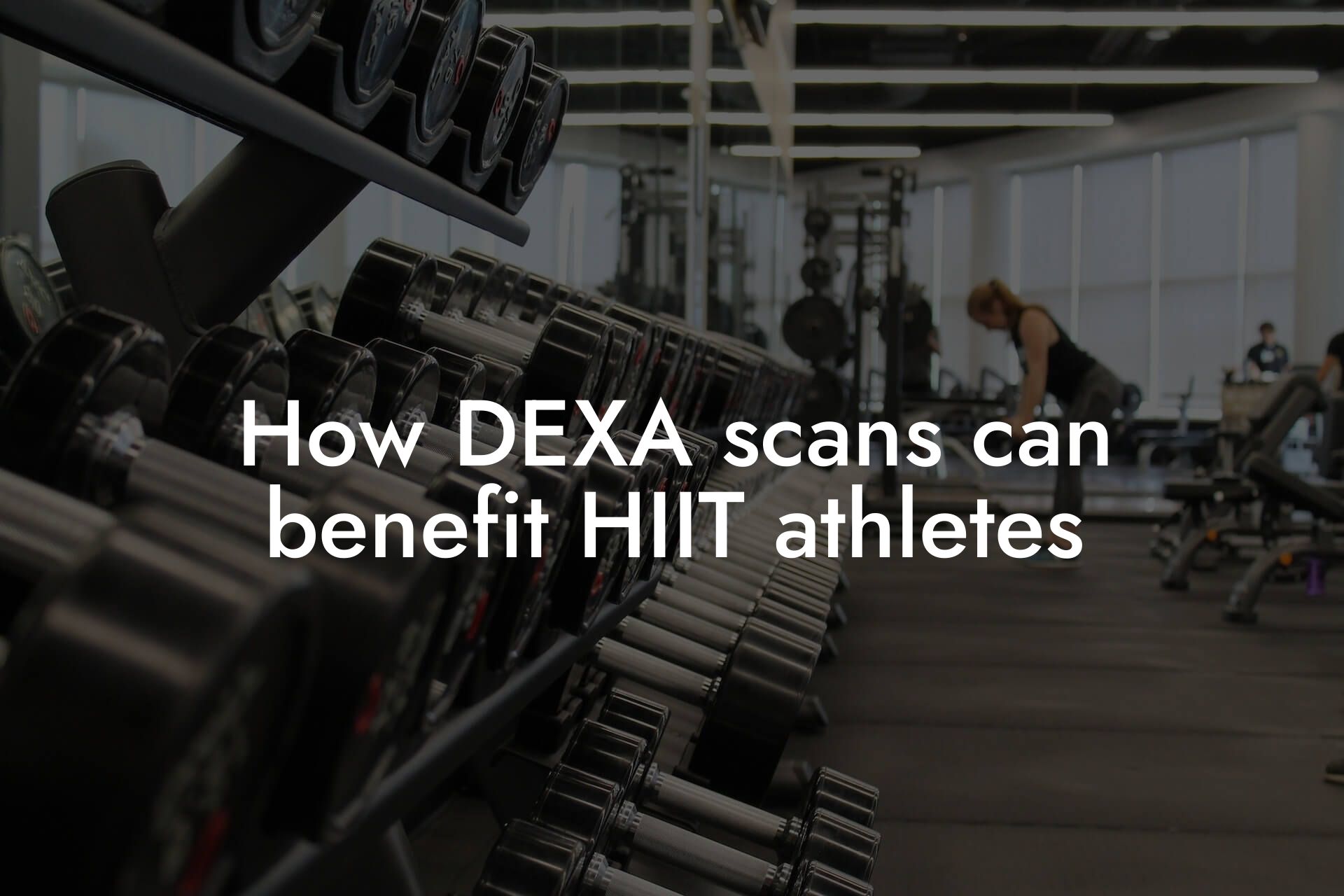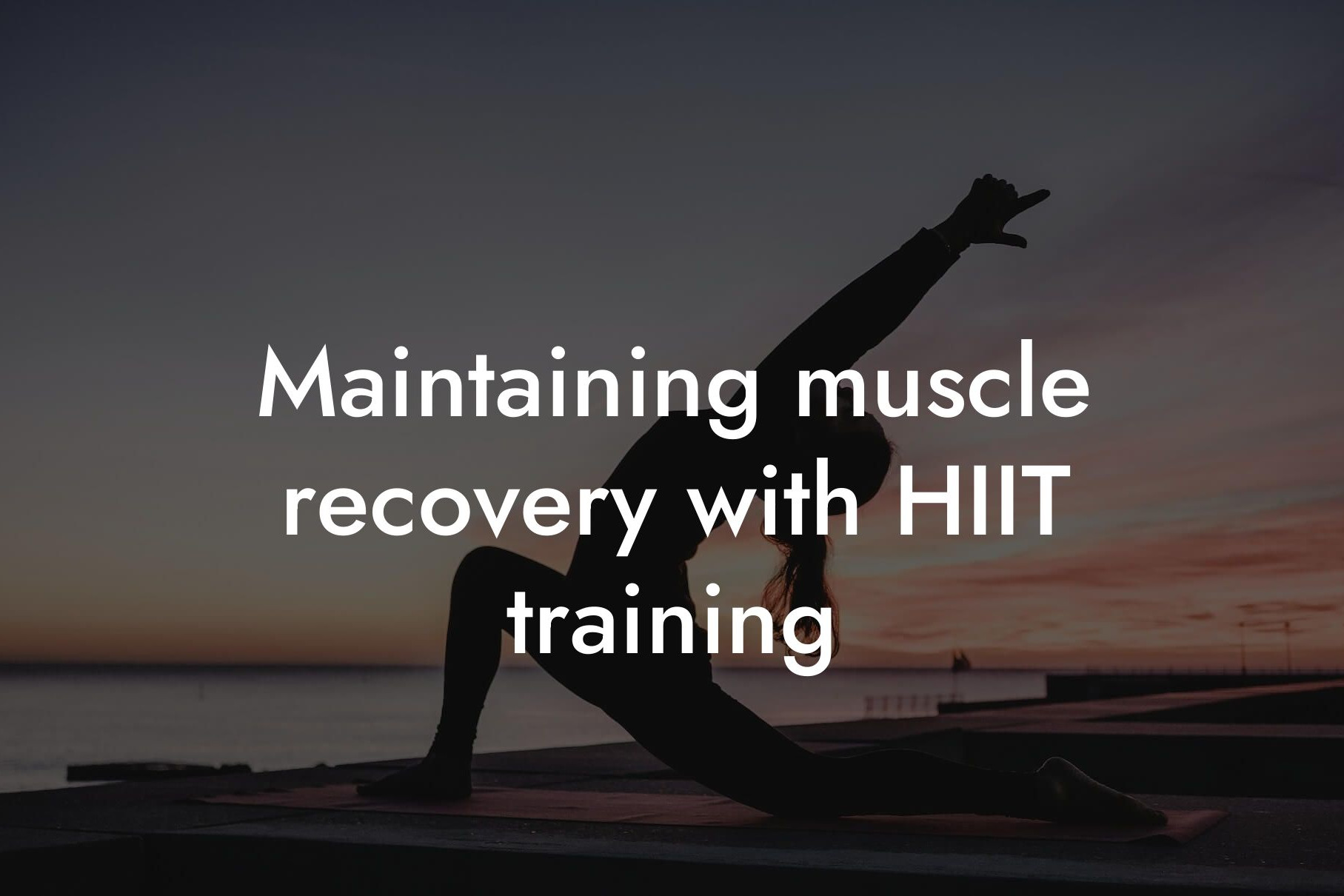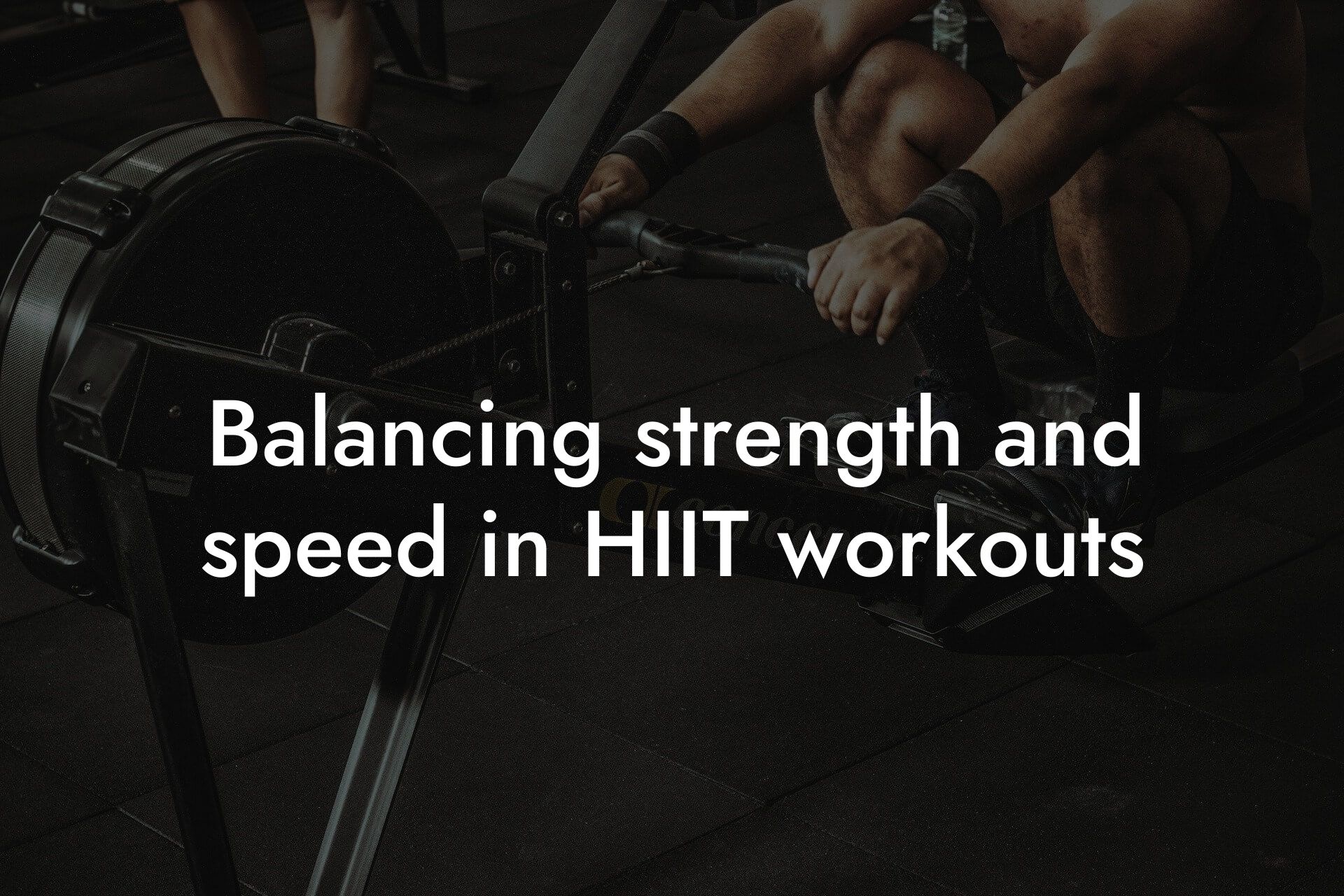As a high-earning professional, you understand the importance of maintaining a healthy and fit physique. High-Intensity Interval Training (HIIT) is an excellent way to achieve your fitness goals, but it requires a well-planned nutrition strategy to optimize your performance and recovery. At Tano Performance Group, we recognize the importance of nutrition in achieving your physical goals, which is why we're sharing our expert knowledge to help you fuel your HIIT workouts and take your physique to the next level.
Table of Contents
Understanding HIIT and Its Nutritional Demands
HIIT involves short bursts of high-intensity exercise followed by brief periods of rest or low-intensity exercise. This type of training is designed to push your body to its limits, requiring rapid energy production and efficient recovery. To meet these demands, your body needs the right nutrients to fuel your workouts and support your recovery. A well-planned nutrition strategy is essential to optimize your HIIT performance, reduce the risk of injury, and support muscle growth and repair.
Macronutrient Balance for HIIT
A balanced diet that includes the right mix of carbohydrates, protein, and fat is crucial for HIIT enthusiasts. Here's a general guideline for macronutrient balance:
- Carbohydrates: 2-3 grams per kilogram of body weight (focus on complex carbs such as whole grains, fruits, and vegetables)
- Protein: 1.6-2.2 grams per kilogram of body weight (focus on lean protein sources such as chicken, fish, and eggs)
- Fat: 0.5-1 gram per kilogram of body weight (focus on healthy fats such as nuts, seeds, and avocados)
Keep in mind that individual macronutrient needs may vary depending on factors such as age, sex, and training experience. It's essential to consult with a registered dietitian or nutritionist to determine your specific macronutrient needs.
Pre-Workout Nutrition for HIIT
What you eat before your HIIT workout can significantly impact your performance. Aim to consume a balanced meal or snack that includes a mix of carbohydrates, protein, and healthy fats 1-2 hours before your workout. Some examples of pre-workout snacks include:
- Banana with almond butter and honey
- Greek yogurt with berries and nuts
- Oatmeal with fruit and a scoop of protein powder
Avoid consuming heavy meals or high-fiber foods that can cause digestive discomfort during your workout.
Post-Workout Nutrition for HIIT
After your HIIT workout, your body needs the right nutrients to support recovery and muscle growth. Aim to consume a post-workout meal or snack that includes a mix of carbohydrates and protein within 30-60 minutes after your workout. Some examples of post-workout snacks include:
- Chocolate milk with protein powder
- Apple slices with peanut butter and a scoop of protein powder
- Protein smoothie with banana and almond milk
This post-workout meal or snack should provide approximately 20-30 grams of protein and 20-30 grams of carbohydrates to support muscle recovery and growth.
Hydration Strategies for HIIT
Adequate hydration is essential for HIIT enthusiasts, as it helps to regulate body temperature, transport nutrients, and remove waste products. Aim to drink at least 8-10 glasses of water per day, and make sure to drink water before, during, and after your workout. You can also consume sports drinks or electrolyte-rich beverages to help replenish lost electrolytes during intense workouts.
Electrolyte Balance for HIIT
HIIT workouts can cause significant electrolyte loss, which can lead to muscle cramps, fatigue, and decreased performance. Electrolytes such as sodium, potassium, magnesium, and calcium play a crucial role in regulating muscle function and nerve activity. To maintain electrolyte balance, consider consuming electrolyte-rich foods and beverages such as:
- Bananas (potassium)
- Avocados (potassium)
- Nuts and seeds (magnesium)
- Coconut water (electrolyte-rich beverage)
You can also consider taking electrolyte supplements or adding electrolyte tablets to your water to help maintain electrolyte balance.
Meal Frequency and Timing for HIIT
Meal frequency and timing can play a significant role in supporting your HIIT workouts. Aim to consume 3-5 main meals and 2-3 snacks per day, spaced out every 2-3 hours. This will help to maintain stable energy levels and support muscle growth and repair. Consider consuming a balanced meal or snack that includes a mix of carbohydrates, protein, and healthy fats every 2-3 hours to support your HIIT workouts.
Individualized Nutrition Planning for HIIT
Every individual is unique, and what works for one person may not work for another. At Tano Performance Group, we understand the importance of individualized nutrition planning for HIIT enthusiasts. Our team of registered dietitians and nutritionists can help you develop a personalized nutrition plan that takes into account your specific macronutrient needs, training goals, and lifestyle. With our expert guidance, you can optimize your nutrition strategy and take your HIIT workouts to the next level.
By incorporating these nutrition strategies into your HIIT training, you can optimize your performance, reduce the risk of injury, and support muscle growth and repair. Remember to stay hydrated, fuel your body with the right nutrients, and listen to your body to achieve your fitness goals. At Tano Performance Group, we're committed to helping you achieve your physical goals and take your business to the next level.
Frequently Asked Questions
What is HIIT and how does it affect my nutrition needs?
HIIT, or High-Intensity Interval Training, is a type of workout that involves short bursts of high-intensity exercise followed by brief periods of rest. This type of training can be beneficial for improving cardiovascular health, increasing caloric burn, and enhancing athletic performance. However, it also requires a specific nutrition strategy to support optimal performance and recovery. As a HIIT enthusiast, you need to fuel your body with the right nutrients to optimize your workouts and support muscle recovery.
How many calories do I need to consume daily as a HIIT enthusiast?
The daily caloric needs of a HIIT enthusiast vary depending on factors such as age, gender, weight, height, and activity level. Generally, you may need to consume 15-20% more calories than your maintenance level to support muscle growth and recovery. For example, if your maintenance calories are 2,500, you may need to consume 2,875-3,000 calories daily.
What is the ideal macronutrient ratio for HIIT enthusiasts?
The ideal macronutrient ratio for HIIT enthusiasts is 2-3 grams of carbohydrates, 1.6-2.2 grams of protein, and 0.5-1 gram of healthy fats per kilogram of body weight. This ratio provides the necessary energy for high-intensity workouts while supporting muscle growth and recovery.
What are the best sources of carbohydrates for HIIT enthusiasts?
The best sources of carbohydrates for HIIT enthusiasts include complex carbs such as whole grains, fruits, and vegetables. These foods provide sustained energy, fiber, and essential nutrients. Some examples of complex carbohydrates include brown rice, quinoa, sweet potatoes, and leafy greens.
How much protein do I need to consume after a HIIT workout?
Consuming 20-30 grams of protein within 30-60 minutes after a HIIT workout can help promote muscle recovery and growth. This is known as the anabolic window, during which your muscles are most receptive to nutrient uptake. Good sources of protein include lean meats, fish, eggs, dairy, and plant-based options like legumes and nuts.
What is the importance of hydration for HIIT enthusiasts?
Proper hydration is essential for HIIT enthusiasts, as it helps regulate body temperature, transport nutrients and oxygen to the muscles, and remove waste products. Aim to drink at least 8-10 glasses of water per day, and make sure to drink water during and after your workouts.
Can I consume sports drinks during HIIT workouts?
Sports drinks can be beneficial during HIIT workouts that last longer than 60 minutes or in extreme heat and humidity. They help replenish electrolytes and provide a quick source of energy. However, for shorter workouts, water is usually sufficient.
How can I optimize my nutrition for morning HIIT workouts?
For morning HIIT workouts, it's essential to fuel your body with a balanced meal or snack that includes complex carbohydrates, protein, and healthy fats. Examples include oatmeal with banana and almond butter, scrambled eggs with whole-grain toast, or Greek yogurt with berries and nuts.
What are some healthy snack options for HIIT enthusiasts?
Healthy snack options for HIIT enthusiasts include fruits, nuts, energy bars, and protein shakes. Look for snacks that are high in protein, fiber, and healthy fats, and low in added sugars and artificial ingredients.
Can I consume caffeine before a HIIT workout?
Caffeine can be beneficial before a HIIT workout, as it can increase alertness, energy, and performance. However, consume it in moderation, as excessive caffeine can lead to jitters, anxiety, and decreased performance.
How can I reduce muscle soreness after a HIIT workout?
Muscle soreness after a HIIT workout can be reduced by consuming anti-inflammatory nutrients such as omega-3 fatty acids, vitamin C, and turmeric. Additionally, stretching, foam rolling, and self-myofascial release can help alleviate muscle tension.
What is the importance of post-workout nutrition for HIIT enthusiasts?
Post-workout nutrition is crucial for HIIT enthusiasts, as it helps promote muscle recovery, growth, and repair. Consuming a balanced meal or snack that includes carbohydrates, protein, and healthy fats within 30-60 minutes after a workout can help optimize recovery.
Can I consume protein shakes as a meal replacement?
While protein shakes can be a convenient way to increase protein intake, they should not be used as a meal replacement. Whole foods provide essential nutrients, fiber, and satiety that protein shakes lack. Use protein shakes as a supplement to your diet, not a replacement.
How can I monitor my progress as a HIIT enthusiast?
Monitoring your progress as a HIIT enthusiast can be done by tracking your workouts, body fat percentage, weight, measurements, and progress photos. Use a food diary or mobile app to track your nutrition and make adjustments as needed.
What are some common nutrition mistakes HIIT enthusiasts make?
Common nutrition mistakes HIIT enthusiasts make include inadequate carbohydrate intake, insufficient protein consumption, and poor hydration. Additionally, consuming too much sugar, salt, and unhealthy fats can hinder performance and recovery.
How can I stay motivated to stick to my nutrition plan?
Staying motivated to stick to your nutrition plan can be achieved by setting realistic goals, tracking your progress, and celebrating small victories. Find a workout buddy or accountability partner to help stay on track, and reward yourself for milestones achieved.
What are some healthy cooking methods for HIIT enthusiasts?
Healthy cooking methods for HIIT enthusiasts include grilling, roasting, baking, and stir-frying. These methods help preserve nutrients and promote healthy weight management.
Can I consume dairy products as a HIIT enthusiast?
Dairy products can be a great source of protein and calcium for HIIT enthusiasts. However, choose low-fat or fat-free options, and be mindful of lactose intolerance or dairy sensitivities.
How can I manage cravings and emotional eating as a HIIT enthusiast?
Managing cravings and emotional eating as a HIIT enthusiast can be achieved by identifying triggers, staying hydrated, and consuming balanced meals and snacks. Find healthy alternatives to comfort foods, and practice mindful eating techniques.
What is the importance of gut health for HIIT enthusiasts?
Gut health is essential for HIIT enthusiasts, as it affects immune function, digestion, and nutrient absorption. Include gut-friendly foods such as probiotics, fiber-rich fruits and vegetables, and omega-3 fatty acids in your diet.
Can I consume supplements as a HIIT enthusiast?
Supplements can be beneficial for HIIT enthusiasts, but always consult with a healthcare professional or registered dietitian before adding new supplements to your regimen. Ensure that you're getting enough nutrients from whole foods before relying on supplements.
How can I stay fueled during long HIIT workouts?
Staying fueled during long HIIT workouts can be achieved by consuming a balanced meal or snack 1-2 hours before, and bringing energy-rich snacks such as energy bars, nuts, or dried fruits during the workout.
What are some healthy restaurant options for HIIT enthusiasts?
Healthy restaurant options for HIIT enthusiasts include grilled meats, fish, and vegetables, as well as whole grains and legumes. Avoid fried foods, added sugars, and saturated fats.
Can I consume alcohol as a HIIT enthusiast?
Alcohol consumption can be detrimental to HIIT enthusiasts, as it can impair recovery, dehydrate the body, and reduce muscle growth. Limit or avoid alcohol consumption, especially during intense training periods.
Here are some related articles you might love...
- How DEXA scans can benefit HIIT athletes
- Maintaining muscle recovery with HIIT training
- Balancing strength and speed in HIIT workouts
- Improving cardiovascular endurance with HIIT
- The role of body composition in HIIT performance
- The importance of bone density in HIIT fitness
- Strength training tips to enhance HIIT performance
- Reducing body fat for better HIIT workout results
- Preventing injuries during HIIT sessions
Zak Faulkner
Zak Faulkner is a leading authority in the realm of physical health and body composition analysis, with over 15 years of experience helping professionals optimise their fitness and well-being. As one the experts behind Tano Performance Group, Zak has dedicated his career to providing in-depth, science-backed insights that empower clients to elevate their physical performance and overall health.
With extensive knowledge of DEXA technology, Zak specializes in delivering comprehensive body assessments that offer precise data on body fat, muscle mass, bone density, and overall physique. His expertise enables individuals to make informed decisions and achieve their fitness goals with accuracy and confidence. Zak’s approach is rooted in a deep understanding of human physiology, combined with a passion for helping clients unlock their full potential through personalised strategies.
Over the years, Zak has earned a reputation for his commitment to excellence, precision, and client-focused service. His guidance is trusted by top professionals who demand the best when it comes to their health. Whether advising on fitness programs, nutritional strategies, or long-term wellness plans, Zak Faulkner’s insights are a valuable resource for anyone serious about taking their health and fitness to the next level.
At Tano Performance Group, Zak continues to lead our Content Team revolutionising how professionals approach their physical health, offering unparalleled expertise that drives real results.




